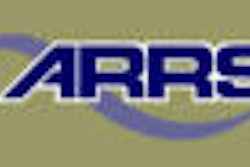Everyone knows the so-called golden rule of radiology coding -- if it isn't documented, it didn't happen. And if it didn't happen, you're not going to get paid. But as everyone is also aware, providing proper documentation isn't easy, according to Stacie Buck, vice president of Stuart, FL-based Southeast Radiology Management.
For proper documentation, make sure that physicians, technologists, and coders understand and follow the current procedural terminology (CPT) documentation requirements outlined by the U.S. Centers for Medicare and Medicaid Services (CMS) and the American College of Radiology (ACR). That alone is a big task, she said during a "Radiology Administrator's Compliance & Reimbursement Insider"-sponsored audio conference earlier this year.
But it's an important one, as evidenced by a 2004 fraud case that resulted in a Florida radiology facility paying $2.5 million to settle claims that it billed for studies that physicians did not order.
"Practices must know what rules apply to each place of service," such as a hospital, freestanding, or office setting, Buck said. "The suit reinforces the need for radiologists to communicate with referring physicians and document their efforts to obtain adequate orders and clinical indications when necessary for a requested study."
The following are a few of the documentation requirements of which you should be aware:
42 CFR 482.26: Radiology services must be provided only on the order of practitioners with clinical privileges, practitioners qualified/authorized by state law, or other practitioners authorized by the medical staff and governing body to order the services.
42 CFR 410.32: All diagnostic x-ray tests, diagnostic laboratory tests, and other diagnostic tests must be ordered by the physician who is treating the beneficiary (e.g., the physician who furnishes a consultation or treats the beneficiary for a specific medical problem, and who uses the results in the management of the beneficiary's specific medical problem).
Tests not ordered by the physician who is treating the beneficiary are not reasonable and unnecessary. However, there is an exception for those performing mammography under this rule, Buck said. A physician who meets the qualification requirements for an interpreting physician may order a diagnostic mammogram on the basis of findings on a screening mammogram even though the physician does not treat the beneficiary.
- 42 CFR 410.33 Independent diagnosis testing facilities (IDTF): All procedures performed by the IDTF must be specifically ordered in writing by the physician who is treating the beneficiary. The facility's supervising physician may not order tests, unless the IDTF's supervising physician is in fact the beneficiary's treating physician.
The IDTF may not add any procedures on the basis of its internal protocols without a written order from the treating physician.
It is strongly recommended that radiology facilities attempt to obtain an additional order from the physician prior to performing additional tests, Buck said. Otherwise, follow these tips:
- Make sure that the test originally ordered by the referring physician is actually performed.
- Make sure that the additional test is medically necessary based on the results of the initial test.
- Ask whether delaying performance of the test would have an adverse effect on the patient.
- Make sure that the results of the additional tests are communicated to the referring physician and that those results are used in the patient's treatment.
- Make sure that the interpreting physician documents why additional testing was performed.
By Melissa Varnavas
AuntMinnie.com contributing writer
October 4, 2006
This article originally appeared in the "Radiology Administrator's Compliance & Reimbursement Insider," a monthly newsletter published by HC Pro that is designed specifically for radiology administrators. For a free trial subscription, please click here.
Related Reading
Increase image reimbursement with a designated coder, August 7, 2006
Prevent IR coding whirlwind with basics, July 26, 2006
The added value of ACR accreditation, June 13, 2006
Unlock success with strategy, research, April 27, 2006
Preparing for a JCAHO visit, April 18, 2006
Copyright © 2006 HC Pro



















